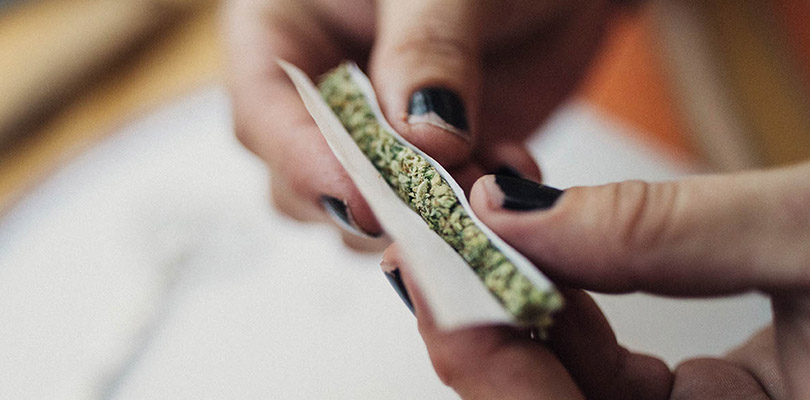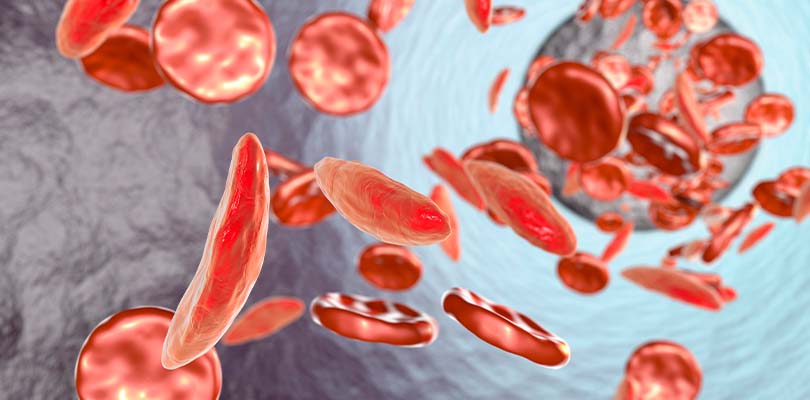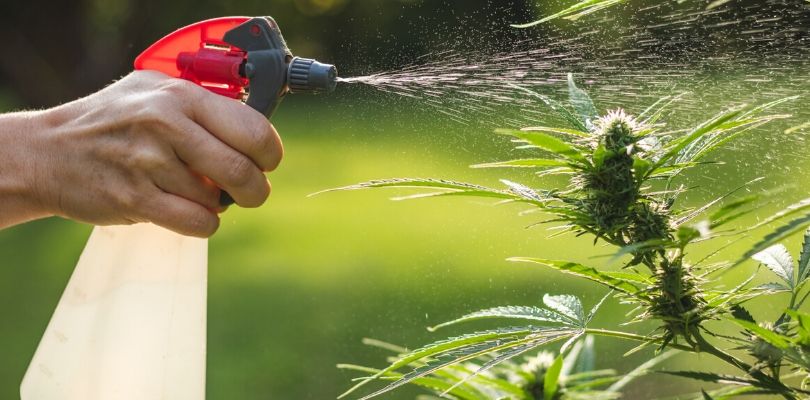What You Need to Know About Smoking Weed With Asthma
More states are legalizing the use of medical marijuana. Some states are going beyond just medical use and legalizing weed for recreational use. But is using marijuana safe for people with chronic diseases, such as asthma and can it help the condition? The answer may depend on the form of marijuana used, dose and the frequency.
Before deciding if smoking weed with asthma is the right choice for you, it’s helpful to learn a little more about marijuana. Marijuana is often referred to by different names, such as pot, weed, and grass. Regardless of what you call it, marijuana is derived from the cannabis plant. Cannabis contains various cannabinoids. Cannabinoids are compounds that bind to specific receptors in the central nervous system.
Tetrahydrocannabinol (THC) is probably the most well-known cannabinoid and is primarily responsible for the “high” or psychoactive effects. But other lesser known cannabinoids that are non-psychoactive may also have a therapeutic effect. Many factors influence the effects of marijuana including the types of cannabis used, the dosage and a person’s experience using the drug.
What Does the Research Say About Smoking Weed for Asthma?
At first glance, smoking weed and asthma may not seem like a good match. But in recent years, the use of medical marijuana has gained more acceptance. Some of the chemical compounds in marijuana have been found to have therapeutic benefits. For example, it has been found to decrease pain, anxiety, and nausea.
Research is mixed on whether the possible benefits of cannabis for people with asthma outweigh the risks. It does appear that potential benefits may depend on the way cannabis is used and how often. For instance, research published in the Canadian Journal of Respiratory Therapy indicated that marijuana may have a bronchodilator effect, opening the airways.
Additional research published in Nature, also indicated the same results and found the chemicals in marijuana may have a potent dilating effect on the airways, which could ease asthma symptoms. But the same research also found that some people with asthma may experience increased bronchospasm when smoking weed for asthma, which could make symptoms worse.
One study published in the Journal of the American Medical Association (JAMA) on the possible effects of cannabis on lung function was conducted over 20 years. Over 5000 men participated in the study. Participant’s lung function was measured periodically using two different tests including a forced vital capacity, which measured the amount of air exhaled forcefully in one breath. A second test measured the volume of air exhaled after taking a deep breath. The men also completed a questionnaire regarding marijuana use.
As expected, men that smoked cigarettes had decreased lung function. The study also indicated that moderate marijuana users slightly improved their lung function test. The study did caution that the potential effects of heavy use on lung function are less clear, but findings suggest it may cause a decline in lung function.
Benefits of Marijuana for Asthma
The two main chemical compounds found in the cannabis plant that provide medical benefits for asthma are THC and cannabinoid (CBD). Cannabis for medical use is available with different concentrations of both THC and CBD.
Using marijuana is not as straightforward as just smoking weed and stopping an asthma attack. But marijuana may benefit people with asthma due to the following effects:
Decreased Immune System Response
THC, which is one of the main compounds in weed is primarily responsible for the psychological effects of the drug. But it also has other effects on the body. THC may regulate immune cell activity and help suppress an abnormal immune system response, which may decrease asthma symptoms.
Suppressing the immune system may not seem like a good idea. But in people with allergic asthma, their immune system overacts to a normally harmless substance causing asthma symptoms. Suppressing that response may prevent asthma flare-ups.
Reduced Inflammation
The cannabinoids in marijuana are thought to have an anti-inflammatory effect. Asthma causes inflammation in the airways, which can make breathing difficult. By decreasing inflammation, it may open the airways and ease asthma symptoms.
Bronchodilation
Studies have found that marijuana may have a bronchodilator effect. The exact physiological mechanism on how weed dilates the bronchi is not fully known. But it’s thought that the THC in marijuana blocks the release of acetylcholine. Acetylcholine is a chemical, which can cause constriction or narrowing of the airways during an asthma attack.
Reduced Pain
Although pain is not considered one of the main symptoms of asthma, many people have chest discomfort or tightness during an asthma flare-up. There is not any specific research or studies on the use of cannabis to treat asthma-related pain. But studies have been conducted that suggest marijuana can decrease certain types of pain.
Side Effects of Smoking Weed With Asthma
The compounds in marijuana may have certain benefits. But as with most drugs and medication, there can also be side effects. The extent of side effects may vary depending on the potency of the weed, which means how much THC or CBD it contains. High levels of THC appear to cause more side effects than CBD.
It’s also important to remember that everyone reacts differently to drugs. Plus, marijuana can contain many other chemicals besides THC and CBD. The amounts of other chemicals may vary from plant to plant, which can also alter side effects. Some possible side effects of marijuana use include:
- Increased appetite
- Dizziness
- Red eyes
- Decreased coordination
- Short-term memory problems
What about dependency? According to the National Institute on Drug Abuse, research suggests that anywhere from about nine to 30 percent of people that regularly use marijuana may develop marijuana use disorder. But those stats are not specific to people that use medical cannabis or use weed for asthma.
A person’s chances of developing an addiction to marijuana probably depend on several factors, such as how often they use the drug, the potency of the weed, and their genetic predisposition to develop an addiction.
While asthma and anemia are two different health conditions, there may be a link. From symptoms to treatments, learn more here.
Forms of Marijuana for Use
When you think of smoking weed and asthma, it might seem a bit counterintuitive. After all, the most popular way to use cannabis for recreation is smoking. Smoking anything with asthma is probably not the best idea.
But it’s important to remember that smoking is only one way to use weed. There are also several other forms of marijuana. Keep in mind; each form may have a different concentration of THC and CBD, onset, and duration of effects.
There is not a “best” form of marijuana to use. It comes down to personal preference. Certain forms, such as patches tend to provide an exact dosage more accurately than vaping or smoking weed.
Marijuana for asthma is available in the following forms:
- Vaping: Vaping involves placing dried weed or extract into a vape pen or vaporizer device where it is heated. The heat creates a vapor instead of smoke. The vapor, which is a fine mist, is released and inhaled. Vaping usually causes less respiratory side effects than smoking weed.
- Edibles: Edibles are another popular way of using weed for asthma. Edibles have marijuana oils infused or cooked into them. Some people make their own edibles. There are also various types of edibles on the market including cookies, cakes, and gummy bears. Edibles that are sold legally usually label the level of THC and CBD in milligrams. The typical dose is often 10mg. People that have not used cannabis in the past may want to start with a lower dose and determine its effect. Edibles may take a little longer to feel the effects than smoking or vaping.
- Sprays: Marijuana sprays are also available. The sprays come in different flavors and can be sprayed on a blunt or directly under the tongue.
- Tinctures: A tincture is a concentrated liquid form of marijuana. It is made by soaking the cannabis plant in alcohol. The alcohol extracts the cannabinoids. Tinctures usually come in a small bottle with a dropper. The liquid can be added to water or other drinks, or a few drops can be placed under the tongue. Using tinctures allows people to get the benefits of marijuana without the possible respiratory complication of smoking.
- Transdermal Patch: Marijuana transdermal patches are also available to deliver THC through the skin. Usually, the patch is worn on the ankle, foot, or wrist. One patch is considered a dose and can be worn for up to eight hours. A transdermal patch is a good option for people that do not want to ingest marijuana and who prefer not to inhale the substance.
Risks of Smoking Weed With Asthma
Using marijuana in certain forms may have some benefits for people with asthma. But choosing to use weed for asthma by smoking it has possible negative consequences. According to the American Thoracic Society, there is no safe or best way to smoke marijuana.
When you smoke weed, various toxins, such as tar, are released as it burns. The combustion caused by marijuana smoke contains some of the same irritants and toxins as tobacco smoke, which may irritate the airways. Also, other chemicals in weed that are not as widely researched may have effects on the lungs that are not known.
Plus, marijuana is usually smoked a little different than a tobacco cigarette. It’s common for people that smoke weed to inhale deeper than you would inhale tobacco and hold the smoke in the lungs a bit longer. The deeper inhalation and longer hold expose a person to greater amounts of tar and other potential toxins, which may irritate the lungs.
It’s difficult to predict how someone with asthma will respond to smoking weed. People with asthma already have sensitive airways. Past response to smoking marijuana does not necessarily mean a person will react the same way each time they smoke weed.
When marijuana is smoked, it also increases the risk of developing a serious lung infection. Aspergillosis is a type of mold that sometimes lives on cannabis plants. Smoking marijuana contaminated with aspergillosis can lead to pneumonia. Aspergillosis lung infections can become serious and even have the potential to be life-threatening.
It’s also possible for people that smoke marijuana to develop large pockets of air or bubbles in their lungs called bullae. According to the American Thoracic Society, heavy marijuana smokers that are young are most likely to develop bullae from smoking weed. Bullae can cause problems breathing. The air bubbles can also rupture, which might lead to a collapsed lung.
Can You Develop Asthma from Smoking Weed?
It appears that smoking weed will not cause asthma to develop. But in people that already have asthma, smoking weed may cause a flare-up of symptoms.
In some people, inhaling marijuana smoke into the lungs can increase asthma symptoms, such as wheezing, coughing, and tightness in the chest, due to airway irritation. There is also a risk that inhaling the smoke will lead to bronchospasm.
The Bottom Line...
For those that have asthma and smoke marijuana, it’s essential to determine if smoking weed is making symptoms worse. It is usually obvious if smoking weed is affecting your lungs. If during or shortly after smoking marijuana, you develop increased mucus, wheezing, or coughing, it is likely making your asthma worse.
The bottom line is some research suggests that the active compounds in marijuana may have some benefits for people with asthma. But smoking anything including weed is risky for people with respiratory diseases including asthma. If you are considered using weed for asthma, it’s best to avoid smoking it and instead use other forms, such as edibles or sprays.







